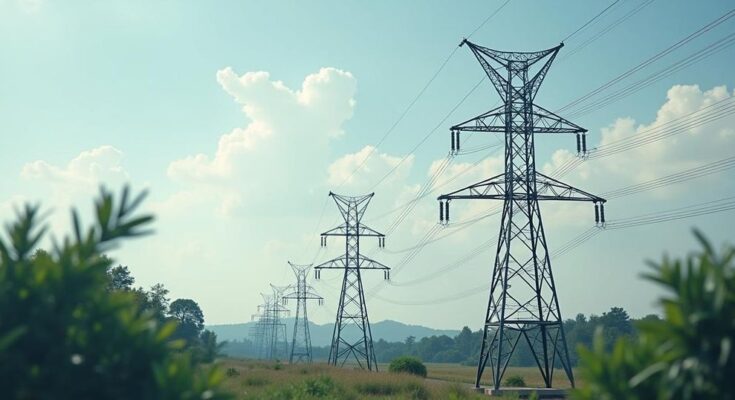In its latest report, the Nigerian Electricity Regulatory Commission (NERC) announced that Benin Republic, Niger, and Togo owe a total of N9.41 billion ($5.79 million) for electricity supplied in Q2 of 2024. This marks an improvement compared to zero payments made in the previous quarter. Despite these payments, significant debts and payment failures persist both internationally and domestically, highlighting ongoing challenges in the energy sector’s billing and collection processes.
The Nigerian Electricity Regulatory Commission (NERC) has disclosed that the governments of Benin Republic, Niger, and Togo collectively owe Nigeria approximately N9.41 billion, which is equivalent to $5.79 million, for electricity supplied during the second quarter of 2024. This information was included in their latest quarterly report released over the weekend. As per an international treaty, Nigeria provides electricity to neighboring countries, including Benin Republic, Togo, and Niger. The amounts owed are associated with the following companies: Paras-SBEE and Transcorp-SBEE from Benin Republic; Mainstream-NIGELEC from Niger; and Odukpani-CEET from Togo. This current debt reflects an improvement over the first quarter of 2024 when these international customers did not make any payments towards their N14.19 million invoice. The report also highlighted that market operators issued a total invoice of $15.60 million to these companies, of which only $9.81 million was paid. Domestic bilateral consumers also displayed poor payment performance, failing to remit N695.4 million out of N1.99 billion due in the same period. However, they did manage to pay a cumulative amount of N1,295.90 million against an invoice of N1,991.30 million for services rendered in the second quarter. These insights underscore ongoing challenges in the energy sector’s billing and collection processes, both for international and domestic consumers. Overall, while there are indications of some improvement in payment performance by the international customers compared to earlier months, significant debts continue to pose a challenge for the sector.
The ongoing issue pertaining to electricity debts from neighboring countries is rooted in an international agreement that allows Nigeria to export electricity to its West African neighbors. The NERC monitors these transactions and maintains oversight over the billing and payment systems for electricity supplied. The regional electricity distribution relies heavily on these arrangements, as they play a crucial role in energy access and economic stability in the region. The financial transactions are affected not only by market dynamics but also by broader economic factors, such as exchange rates and internal billing practices among domestic and international consumers. The current data provided by NERC serves as a critical measure for understanding these cross-border electricity trade relationships and their financial implications.
In conclusion, the NERC report indicates that while there has been a slight improvement in payment by international consumers of electricity for the second quarter of 2024, significant debts remain outstanding. The amount owed by the governments of Benin Republic, Niger, and Togo totals N9.41 billion, signaling persistent challenges in the billing process. Moreover, domestic consumers have also shown troubling payment patterns, raising concerns about the overall health of the electricity supply sector in Nigeria and its dependencies on international arrangements.
Original Source: www.ripplesnigeria.com




